Bali Recorded 582 Earthquakes in 2024, prompting warnings from experts
It is one of the most popular destinations for Aussies, but a marked increase in a potentially deadly activity has prompted a new warning for tourists.
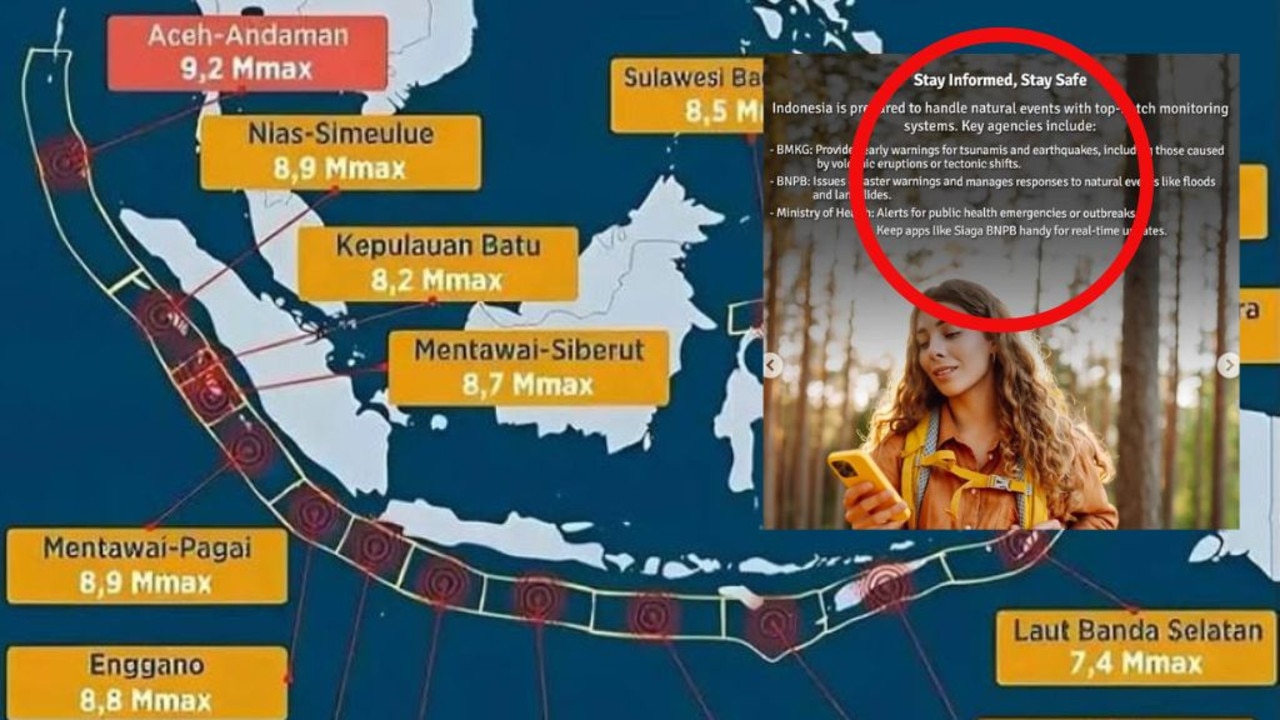
Experts are warning Bali-bound tourists to brace for a rocky year ahead, after a monumental trend was observed in 2024.
Attracting more than 500,000 inbound visitors on average each month — with about a million of those coming from Australia each year — Bali is well and truly cemented as a sought after destination for travellers.
But experts have crunched the numbers, and if the last 12 months is anything to go by — the next year could prove to be very shaky for locals and visitors alike.
According to the Bali Branch of the National Agency for Meteorology, Climate, and Geophysics (BBMKG), Bali alone recorded 582 earthquakes in 2024 — and while the majority of those seismic events measured below 3 magnitudes — the island saw an increase in activity by more than 80 per cent on the year prior.
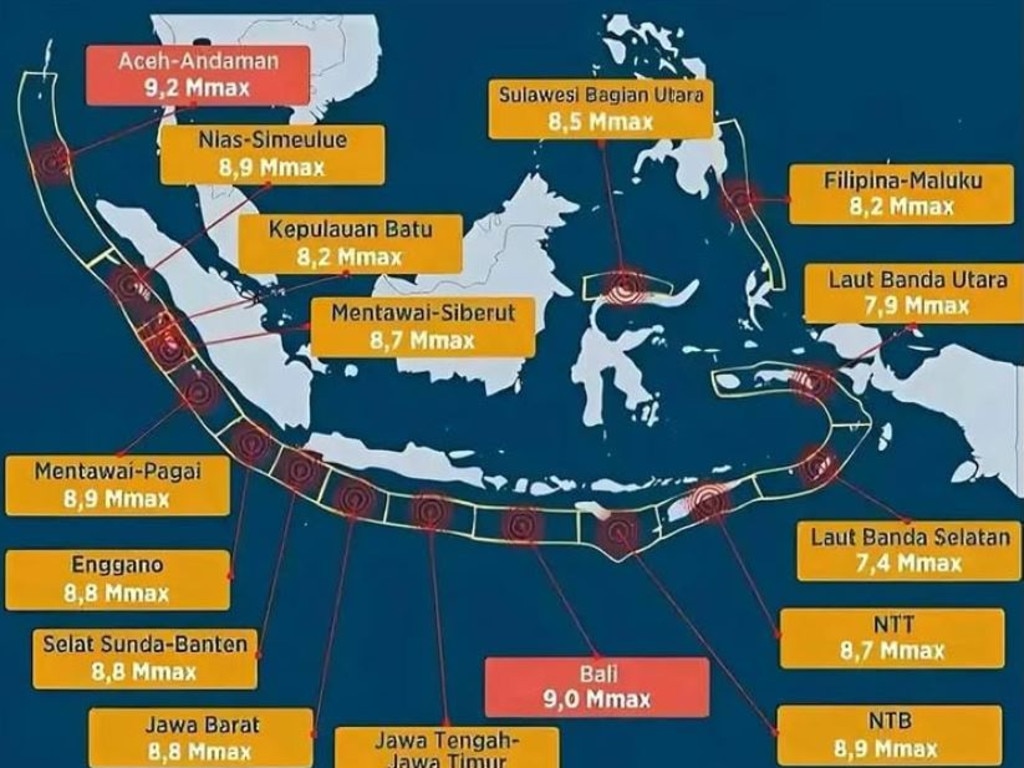
Fortunately, most of the earthquakes recorded had shallow epicenters, as reported by the Bali Sun, with majority measuring less than 60 kilometres below the earth’s surface.
And of the more than 580 earthquakes measured in Bali in 2024, just 20 per cent had a magnitude of more than 3 and none surpassing 5 magnitudes, with the highest both falling in September at 4.8 M and 4.9 M, respectively.
But it’s not just Bali that has seen the marked increase in earthquake activity.
According to the EM-DAT emergency events database, which compiled the occurrence and effects of 22,000 mass disasters worldwide in the 20th century, the number of earthquakes recorded globally is on the increase.
Between 1900 and 1950, the Earth recorded an average of 3.4 earthquakes per year with a magnitude greater than 6.5. That figured doubled to 6.7 a year until the early 1970s, and was almost five times that in the 2000s.
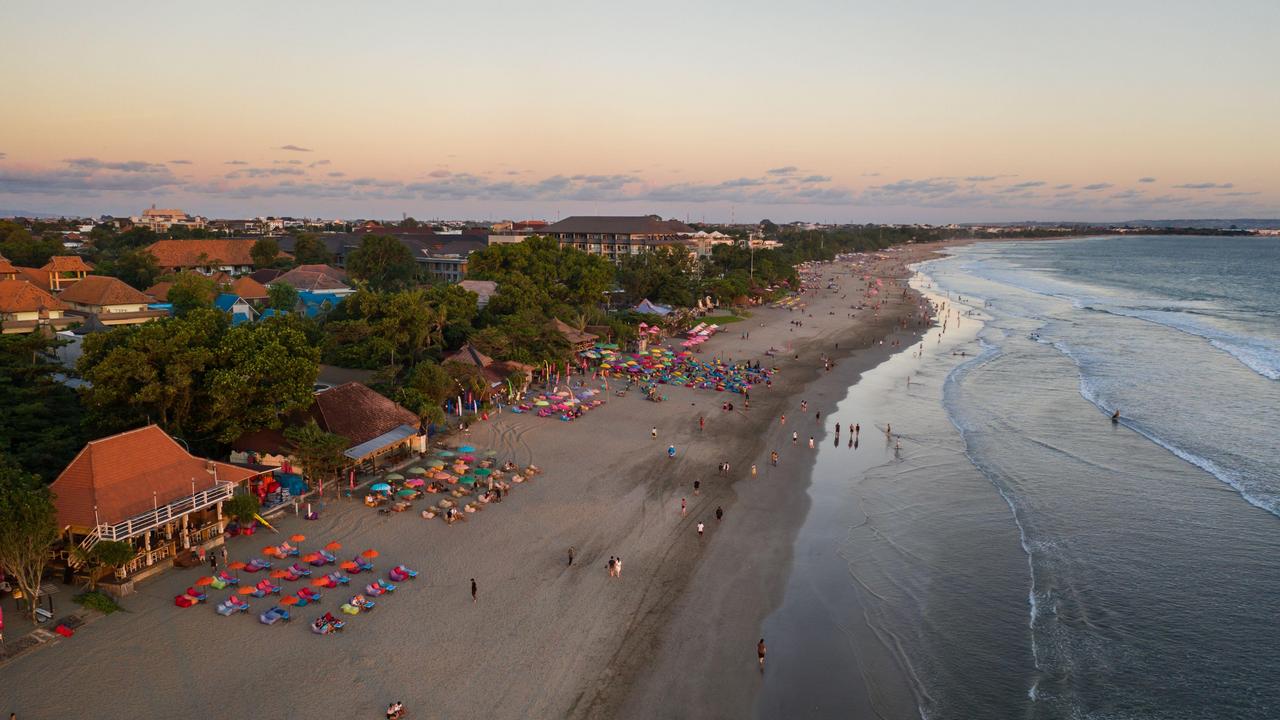
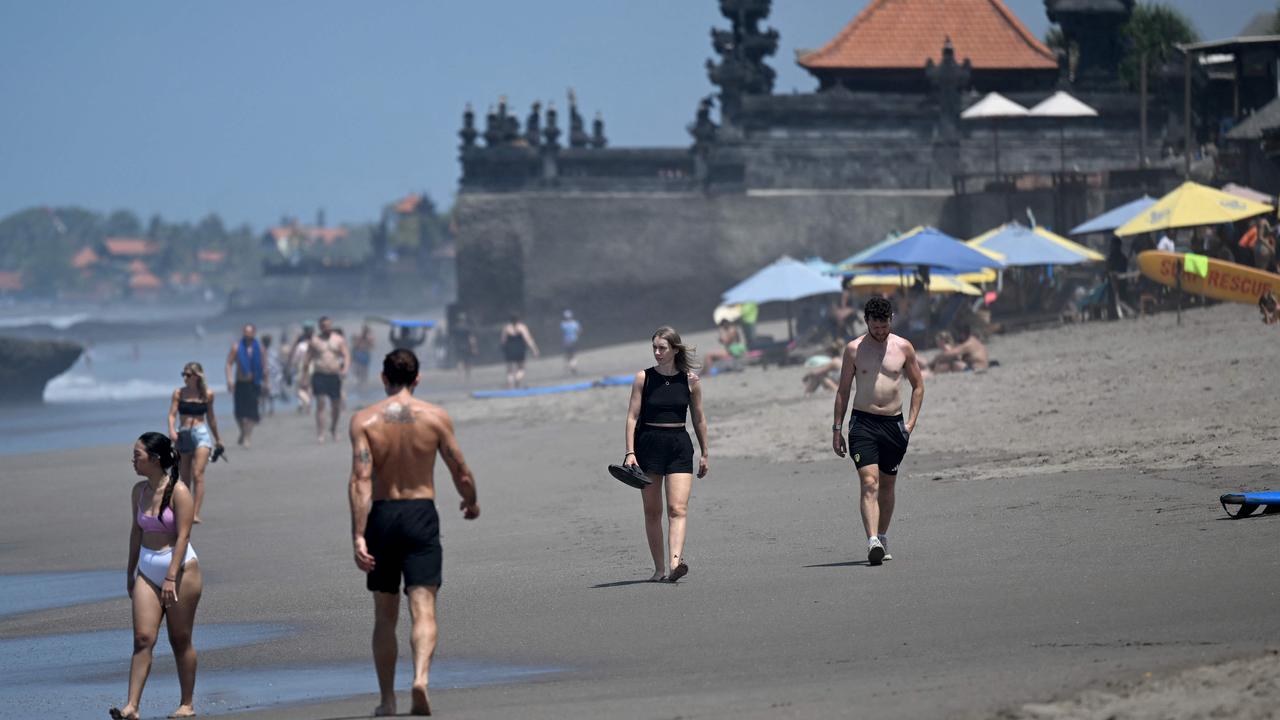
The ComCat earthquake catalog acknowledges that over time — seismic instruments have been able to record more earthquakes — and with an increased interest in natural disasters, the world now learns about earthquake activity more quickly than ever before.
A recent MIT study (Massachusetts Institute of Technology) discovered that some weather events such as heavy snow storms and significant rain could also play a role in triggering earthquakes.
According to the research, the scientists focused on a series of quakes in Japan’s Noto Peninsula — which is not where the latest 6.6 magnitude quake hit earlier this week — theresearch showed that seismic activity matched with changes in the underground pressure, itself influenced by snowfall and precipitation.

“We see that snowfall and other environmental loading at the surface impacts the stress state underground, and the timing of intense precipitation events is well-correlated with the start of this earthquake swarm,” study author William Frank, an assistant professor in MIT’s Department of Earth, Atmospheric and Planetary Sciences (EAPS), said.
“So, climate obviously has an impact on the response of the solid earth, and part of that response is earthquakes.”
The Head of the Denpasar Meteorology, Climatology and Geophysics Agency, Cahyo Nugroho, said the increase of activity in Bali — albeit majority being under 3M - should be a warning to tourists visiting the region to be aware of what to do in the case of an emergency.
Tourism boards have been vigilant in spreading awareness and advice on what to do should there be significant activity.
Instagram account @WonderfulIndonesia shared a seven-page slide of what do in light of a quake, including advice on not “ignoring evacuation orders or entering restricted areas” as well as “sharing unverified information that can cause public panic.”
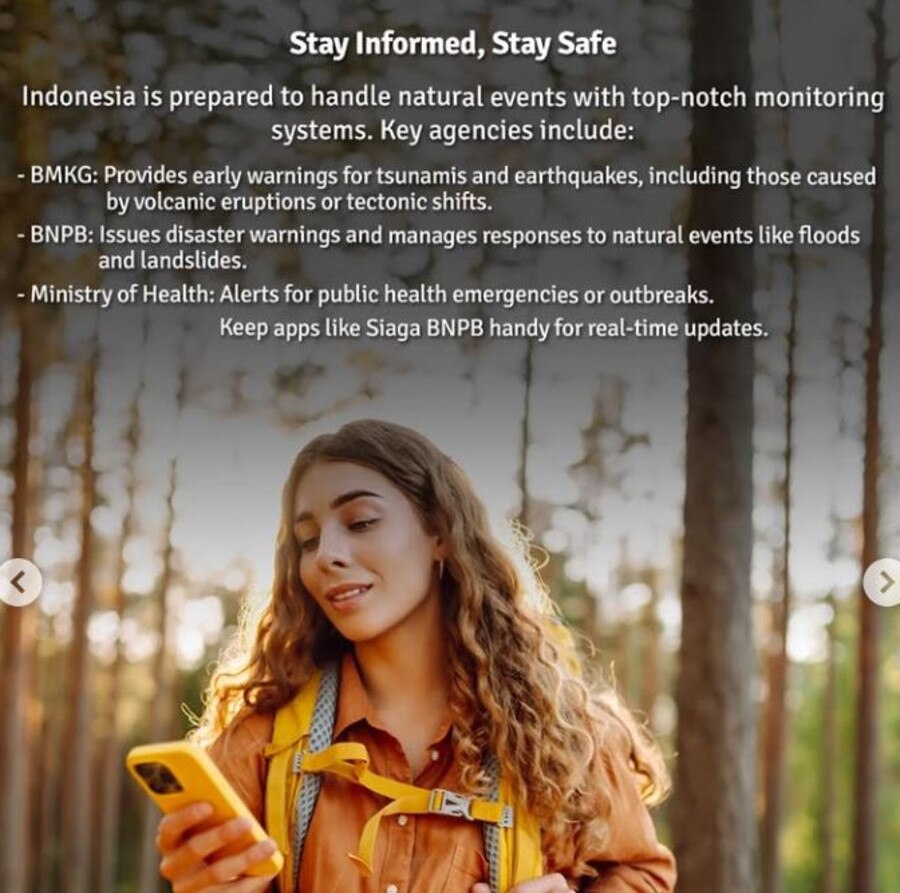
The tourism information department also advised tourists what they should be doing in an emergency, including if and when an earthquake hits the region.
“Follow instruction and listen to evacuation orders and directions from local authorities,” is the first suggestion, followed by tourists “staying calm” and “avoid panicking”.
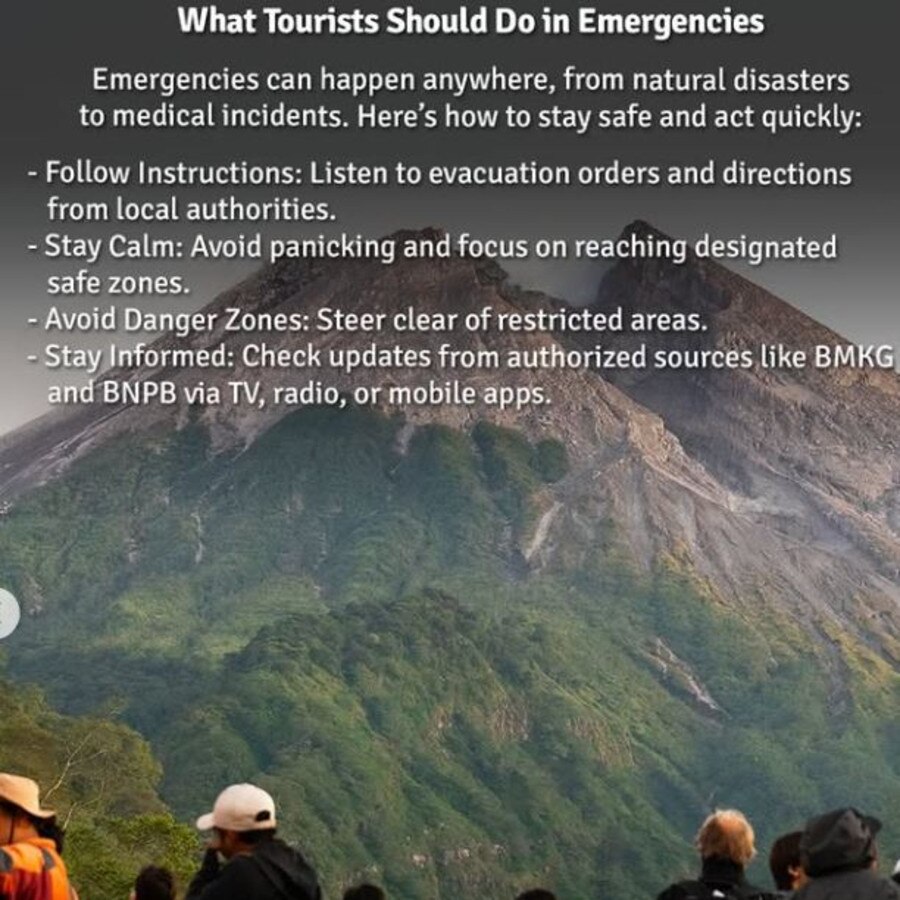
The department said that remaining vigilant is imperative, because the threat of an earthquake could then trigger a tsunami. According to the Bali Sun, the risk is higher along the southern coast of the island, where all of the major tourist resorts are located.
“If the public feels a strong earthquake that lasts a long time, immediately leave the house and stay away from the beach,” Nguroho said, adding that tourists should always have a conversation with their accommodation about earthquake evacuation routes and safety assembly points when they check in to their hotel, villa, or guesthouse.






